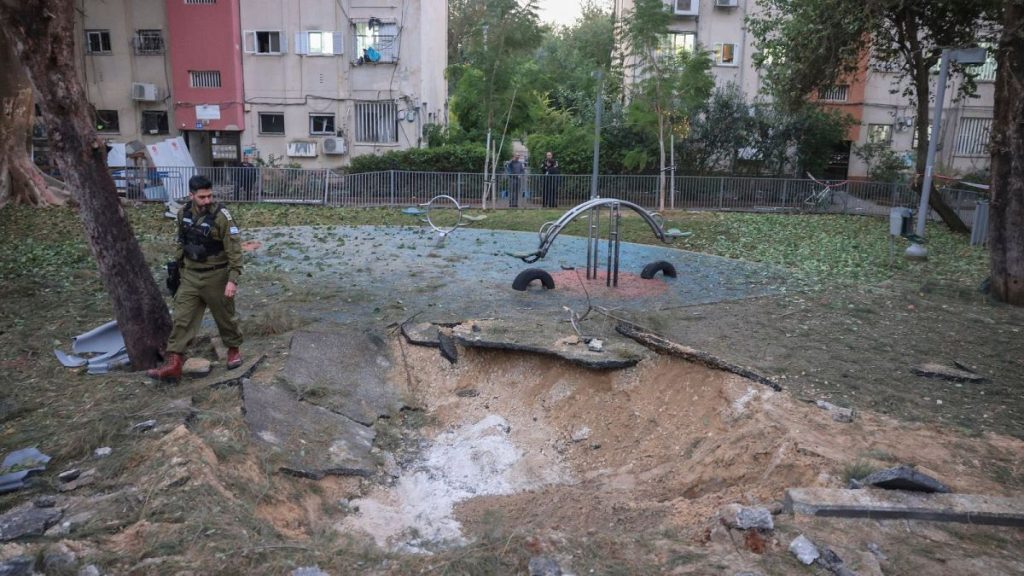The ongoing conflict between Israel and Hamas has witnessed a spillover into Yemen, with the Houthi rebels, an Iran-backed Shia Islamist political and military organization, emerging as a new player in the escalating tensions. The Houthis claimed responsibility for a missile attack on Tel Aviv, Israel’s second-largest city, causing minor injuries and property damage. This attack, which the Houthis described as targeting a military installation with a “hypersonic ballistic missile,” followed Israeli airstrikes on Houthi-controlled territories in Yemen, including the capital Sanaa and the port city of Hodeida. These strikes were retaliatory measures in response to previous Houthi missile attacks on Israeli territory, highlighting a dangerous escalation of cross-border hostilities.
The exchange of fire between Israel and the Houthis adds another layer of complexity to the already volatile situation in the Middle East. The Israeli-Palestinian conflict, primarily focused on the Gaza Strip, has seen the involvement of various regional actors, including Iran, which supports both Hamas and the Houthis. The Houthi involvement expands the geographical scope of the conflict, potentially drawing Yemen deeper into the regional turmoil. The Red Sea, a vital waterway for international trade and energy transport, becomes a potential flashpoint with the Houthis claiming attacks on shipping in the region.
The Houthi missile attack on Tel Aviv, while not resulting in significant casualties, sent shockwaves through Israel, demonstrating the rebels’ capability to strike beyond Yemen’s borders. The attack underscores the vulnerability of civilian populations to long-range missile strikes, highlighting the potential for further escalation and the need for de-escalation measures. The attack also brought the conflict closer to Israeli population centers, increasing the likelihood of a more forceful Israeli response.
Israel’s retaliatory airstrikes on Houthi targets in Yemen, particularly on the port of Hodeida, pose significant humanitarian concerns. Hodeida serves as a critical entry point for humanitarian aid to Yemen, a nation grappling with a devastating civil war and a severe humanitarian crisis. The UN has expressed concerns about the damage to the port, warning of potential disruptions to aid deliveries and further exacerbating the suffering of the Yemeni population.
The escalating cross-border attacks between Israel and the Houthis raise concerns about a wider regional conflict. The involvement of regional powers like Iran, which supports both Hamas and the Houthis, adds fuel to the fire. The UN Secretary-General has called for restraint from all parties involved, emphasizing the need to prevent further escalation and avoid exacerbating the already volatile situation in the Middle East. The international community faces the challenge of containing the conflict and preventing it from spiraling into a broader regional war.
The intersection of the Israeli-Palestinian conflict with the Yemeni civil war presents a complex and dangerous scenario. The Houthi involvement adds another dimension to the regional tensions, potentially destabilizing the Red Sea region and further complicating efforts to resolve the ongoing conflicts. The international community needs to engage in diplomatic efforts to de-escalate the situation, ensure the safety of civilians, and promote a peaceful resolution to the various interconnected conflicts in the Middle East. The protection of humanitarian aid access to Yemen remains a paramount concern, as any disruption could have catastrophic consequences for the vulnerable population.














